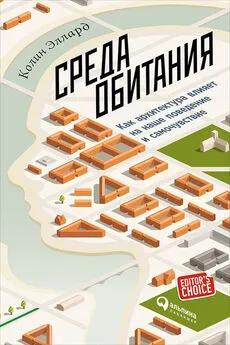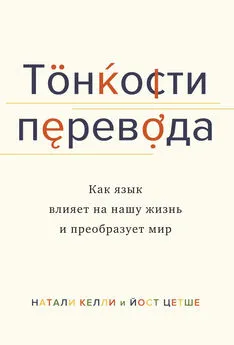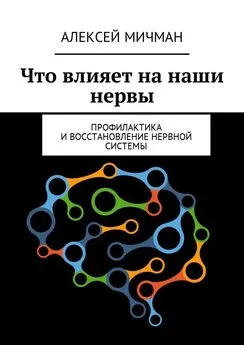Мэтью Джексон - Человеческие сети [Как социальное положение влияет на наши возможности, взгляды и поведение]
- Название:Человеческие сети [Как социальное положение влияет на наши возможности, взгляды и поведение]
- Автор:
- Жанр:
- Издательство:АСТ: CORPUS
- Год:2021
- Город:Москва
- ISBN:978-5-17-117364-7
- Рейтинг:
- Избранное:Добавить в избранное
-
Отзывы:
-
Ваша оценка:
Мэтью Джексон - Человеческие сети [Как социальное положение влияет на наши возможности, взгляды и поведение] краткое содержание
В формате PDF A4 сохранен издательский макет книги.
Человеческие сети [Как социальное положение влияет на наши возможности, взгляды и поведение] - читать онлайн бесплатно ознакомительный отрывок
Интервал:
Закладка:
Fryer R. G. (Jr.) Guess Who’s Been Coming to Dinner? Trends in Interracial Marriage over the 20th Century // Journal of Economic Perspectives. 2007. Vol. 21. № 2. P. 71–90.
Fryer R. G. (Jr.), Goeree J. K., Holt Ch. A. Experience-Based Discrimination: Classroom Games // The Journal of Economic Education. 2005. Vol. 36. P. 160–170.
Fryer R. G. (Jr.), Katz L. F. Achieving Escape Velocity: Neighborhood and School Interventions to Reduce Persistent Inequality // The American Economic Review. 2013. Vol. 103. P. 232–237.
Fryer R. G. (Jr.), Levitt S. D. The Causes and Consequences of Distinctively Black Names // The Quarterly Journal of Economics. 2004. Vol. 119. P. 767–805.
Fryer R. G. (Jr.), Levitt S. D., List J. A. Parental Incentives and Early Childhood Achievement: A Field Experiment in Chicago Heights . (2015) National Bureau of Economic Research Working Paper № 21477.
Gächter S., Schulz J. F. Intrinsic Honesty and the Prevalence of Rule Violations Across Societies // Nature. 2016. Vol. 531. P. 496–499.
Gaertner S. L., Dovidio J, F., Anastasio Ph, A., Bachman B, A., Rust M. C. The Common Ingroup Identity Model: Recategorization and the Reduction of Intergroup Bias // European Review of Social Psychology. 1993. Vol. 4. P. 1–26.
Gagnon J., Goyal S. Networks, Markets, and Inequality // The American Economic Review. 2017. Vol. 107. P. 1–30.
Gai P., Kapadia S. Contagion in Financial Networks // Proceedings of the Royal Society A. 2010. Vol. 466. P. 2401–2423.
Galbiati R., Zanella G. The Tax Evasion Social Multiplier: Evidence from Italy // Journal of Public Economics. 2012. Vol. 96. P. 485–494.
Galenianos M. Referral Networks and Inequality . (2016) SSRN Paper № 2768083.
Galeotti A., Goyal S. The Law of the Few // The American Economic Review. 2010. Vol. 100. № 4. P. 1468–1492.
Galeotti A., Goyal S., Jackson M. O., Vega-Redondo F., Yariv L. NetworkGames // The Review of Economic Studies. 2010. Vol. 77. № 1. P. 218–244.
Galton F. VoxPopuli // Nature. 1901. Vol. 75. № 7. P. 450–451.
Garas A., Argyrakis P., Rozenblat C., Tomassini M., Havlin Sh. Worldwide Spreading of Economic Crisis // New Journal of Physics. 2010. Vol. 12. Article № 113043.
Garces E., Thomas D., Currie J. Longer-Term Effects of Head Start // The American Economic Review. 2002. Vol. 92. P. 999– 1012.
Gee L. K., Jones J., Burke M. Social Networks and Labor Markets: How Strong Ties Relate to Job Finding on Facebook’s Social Network // Journal of Labor Economics. 2017. Vol. 35. P. 485–518.
Gentzkow M. Polarization in 2016 . Essay, Stanford University, 2017.
Gentzkow M., Shapiro J. M., Taddy M. Measuring Polarization in High-Dimensional Data: Method and Application to Congressional Speech . (2016) National Bureau of Economic Research Working Paper № 22423.
Gerber J. S., Offit P. A. Vaccines and Autism: A Tale of Shifting Hypotheses // Clinical Infectious Diseases. 2009. Vol. 48. P. 456–461.
Ghiglino Ch., Goyal S. Keeping Up with the Neighbors: Social Interaction in a Market Economy // Journal of the European Economic Association. 2010. Vol. 8. № 1. P. 90–119.
Giancola J., Kahlenberg R. D. True Merit: Ensuring Our Brightest Students Have Access to Our Best Colleges and Universities . Jack Kent Cooke Foundation, 2016.
Gilbert E. N. Random Graphs // The Annals of Mathematical Statistics. 1959. Vol. 30. P. 1141–1144.
Gilchrist D. Sh., Glassberg Sands E. Something to Talk About: Social Spillovers in Movie Consumption // Journal of Political Economy. 2016. Vol. 124. P. 1339–1382.
Gilman E., Clarke Sh., Brothers N., Alfaro-Shigueto J., Mandelman J., Mangel J., Petersen S. et al. Shark Interactions in Pelagic Longline Fisheries // Marine Policy. 2008. Vol. 32. P. 1–18.
Gjerstad S. Risk Aversion, Beliefs, and Prediction Market Equilibrium . Economic Science Laboratory Working Paper 04–17, University of Arizona, 2004.
Gladwell M. The Tipping Point: How Little Things Can Make a Big Difference . N. Y.: Back Bay Books, 2000.
Glaeser E. L., Sacerdote B. I., Scheinkman J. A. The Social Multiplier // Journal of the European Economic Association. 2003. Vol. 1. P. 345–353.
Glaeser E. L., Sunstein C. R. Extremism and Social Learning // Journal of Legal Analysis. 2009. Vol. 1. P. 263–324.
Glasserman P., Young H. P. Contagion in Financial Networks // Journal of Economic Literature. 2016. Vol. 54. № 3. P. 779–831.
Gneezy U., List J., Price M. K. Toward an Understanding of Why People Discriminate: Evidence from a Series of Natural Field Experiments . (2012) National Bureau of Economic Research Working Paper № 17855.
Godfrey S. S. Networks and the Ecology of Parasite Transmission: A Framework for Wildlife Parasitology // International Journal for Parasitology: Parasites and Wildlife. 2013. Vol. 2. P. 235–245.
Godfrey S. S., Moore J. A., Nelson N. J., Bull C. M. Social Network Structure and Parasite Infection Patterns in a Territorial Reptile, the Tuatara (Sphenodon punctatus) // International Journal for Parasitology. 2010. Vol. 40. № 13. P. 1575–1585.
Goel R., Soni S., Goyal N., Paparrizos J., Wallach H., Diaz F., Eisenstein J. The Social Dynamics of Language Change in Online Networks // International Conference on Social Informatics. N. Y.: Springer, 2016. P. 41–57.
Goel Sh., Anderson A., Hofman J., Watts D. J. The Structural Virality of Online Diffusion // Management Science. 2015. Vol. 62. № 1. P. 180–196.
Gofman M. A Network-Based Analysis of Over-the-Counter Markets . 2011. Доступно: https://dx.doi.org/10.2139/ssrn.1681151.
Goldin C. D., Katz L. F. The Race Between Education and Technology . Cambridge, Mass.: Harvard University Press, 2009.
Golub B., Jackson M. O. Naive Learning in Social Networks and the Wisdom of Crowds // American Economic Journal: Microeconomics. 2010. Vol. 2. P. 112–149.
Golub B., Jackson M. O. How Homophily Affects the Speed of Learning and Best-Response Dynamics // The Quarterly Journal of Economics. 2012. Vol. 127. P. 1287–1338.
Gould R. V., Fernandez R. M. Structures of Mediation: A Formal Approach to Brokerage in Transaction Networks // Sociological Methodology. 1989. Vol. 19. P. 89–126.
Goyal S. Connections . Princeton, N. J.: Princeton University Press, 2007.
Granovetter M. S. The Strength of Weak Ties // The American Journal of Sociology. 1973. Vol. 78. P. 1360–1380.
Granovetter M. S. Threshold Models of Collective Behavior // The American Journal of Sociology. 1978. Vol. 83. P. 1420–1443.
Granovetter M. S. Economic Action and Social Structure: The Problem of Embeddedness // The American Journal of Sociology. 1985. Vol. 91. P. 481–510.
Granovetter, M. S. Getting a Job: A Study of Contacts and Careers . 2nd ed. Chicago: University of Chicago Press, 1995.
Grinblatt M., Keloharju M., Ikäheimo S. Social Influence and Consumption: Evidence from the Automobile Purchases of Neighbors // The Review of Economics and Statistics. 2008. Vol. 90. P. 735–753.
Grusky D. B., Ku M. C. Gloom, Doom, and Inequality // Social Stratification: Class, Race, and Gender in Sociological Perspective. 2008. Vol. 3. P. 2–28.
Haden B. Pathways to Power: Principles for Creating Socioeconomic Inequalities // Fundamental Issues in Archaeology / Eds. T. D. Price, G. M. Feinman. N. Y.: Springer, 1995. Chapter 2. P. 15–86.
Hahn R. W., Tetlock P. C. Information Markets: A New Way of Making Decisions . N. Y.: AEI-Brookings Joint Center for Regulatory Studies, 2006.
Haines M., Spear S. F. Changing the Perception of the Norm: A Strategy to Decrease Binge Drinking Among College Students // Journal of American College Health. 1996. Vol. 45. P. 134–140.
Hamilton J. T. Democracy’s Detectives: The Economics of Investigative Journalism . Cambridge, Mass.: Harvard University Press, 2016.
Hampton K., Wellman B. Neighboring in Netville: How the Internet Supports Community and Social Capital in a Wired Suburb // City & Community. 2003. Vol. 2. P. 277–311.
Haney C., Banks C., Zimbardo Ph. Interpersonal Dynamics in a Simulated Prison // International Journal of Criminology and Penology. 1973. Vol. 1. P. 69–97.
Hanifan L. J. The Rural School Community Center // The Annals of the American Academy of Political and Social Science. 1916. Vol. 67. P. 130–138.
Hanifan L. J. The Community Center . London: Silver, Burdett, 1920.
Harary F. A Criterion for Unanimity in French’s Theory of Social Power // Studies in Social Power / Ed. D. Cartwright. Ann Arbor: University of Michigan Press, 1959.
Hart B., Risley T. R. Meaningful Differences in the Everyday Experience of Young American Children . Baltimore: Paul H. Brookes Publishing, 1995.
Hayden B. The Pithouses of Keatley Creek . N. Y.: Harcourt Brace College, 1997.
Heath R. Why Do Firms Hire Using Referrals? Evidence from Bangladeshi Garment Factories // Journal of Political Economy. 2018. Vol. 126. № 4. P. 1691–1746.
Heckman J. J. Invest in Early Childhood Development: Reduce Deficits, Strengthen the Economy // The Heckman Equation. 2012. Vol. 7. P. 1–2.
Heckman J. J., Moon S. H., Pinto R., Savelyev P. A., Yavitz A. The Rate of Return to the High-Scope Perry Preschool Program // Journal of Public Economics. 2010. Vol. 94. P. 114–128.
Henrich J. The Secret of Our Success: How Culture Is Driving Human Evolution, Domesticating Our Species, and Making Us Smarter . Princeton, N. J.: Princeton University Press, 2015.
Henrich J., Boyd R., Bowles S., Camerer C., Fehr E., Gintis H., McElreath R. In Search of Homo Economicus: Behavioral Experiments in 15 Small-Scale Societies // The American Economic Review. 2001. Vol. 91. P. 73–78.
Herings P. J.-J., Mauleon A., Vannetelbosch V. Farsightedly Stable Networks // Games and Economic Behavior. 2009. Vol. 67. P. 526–541.
Hicks M. J., Devaraj S. The Myth and the Reality of Manufacturing in America . Center for Business and Economic Research, Ball State University, 2015.
Hilger N. Upward Mobility and Discrimination: The Case of Asian Americans . (2016) National Bureau of Economic Research Working Paper № 22748.
Hill K. Altruistic Cooperation During Foraging by the Ache, and the Evolved Human Predisposition to Cooperate // Human Nature. 2002. Vol. 13. P. 105–128.
Hill K., Hurtado A. M. Ache Life History: The Ecology and Demography of a Foraging People . N. Y.: Routledge, 2017.
Hillebrand E. Poverty, Growth, and Inequality over the Next 50Years . Expert Meeting on How to Feed the World in 2050, Food and Agriculture Organization of the United Nations Economic and Social Development Department, 2009.
Hinsz V. B., Tindale R. S., Vollrath D. A. The Emerging Conceptualization of Groups as Information Processors // Psychological Bulletin. 1997. Vol. 121. P. 43.
Hirshleifer D., Teoh S. H. Herd Behaviour and Cascading in Capital Markets: A Review and Synthesis // European Financial Management. 2003. Vol. 9. P. 25–66.
Hjort J., Poulsen J. The Arrival of Fast Internet and Employment in Africa . (2018) National Bureau of Economic Research Working Paper № 23582.
Читать дальшеИнтервал:
Закладка:
![Обложка книги Мэтью Джексон - Человеческие сети [Как социальное положение влияет на наши возможности, взгляды и поведение]](/books/1061636/metyu-dzhekson-chelovecheskie-seti-kak-socialnoe-po.webp)









